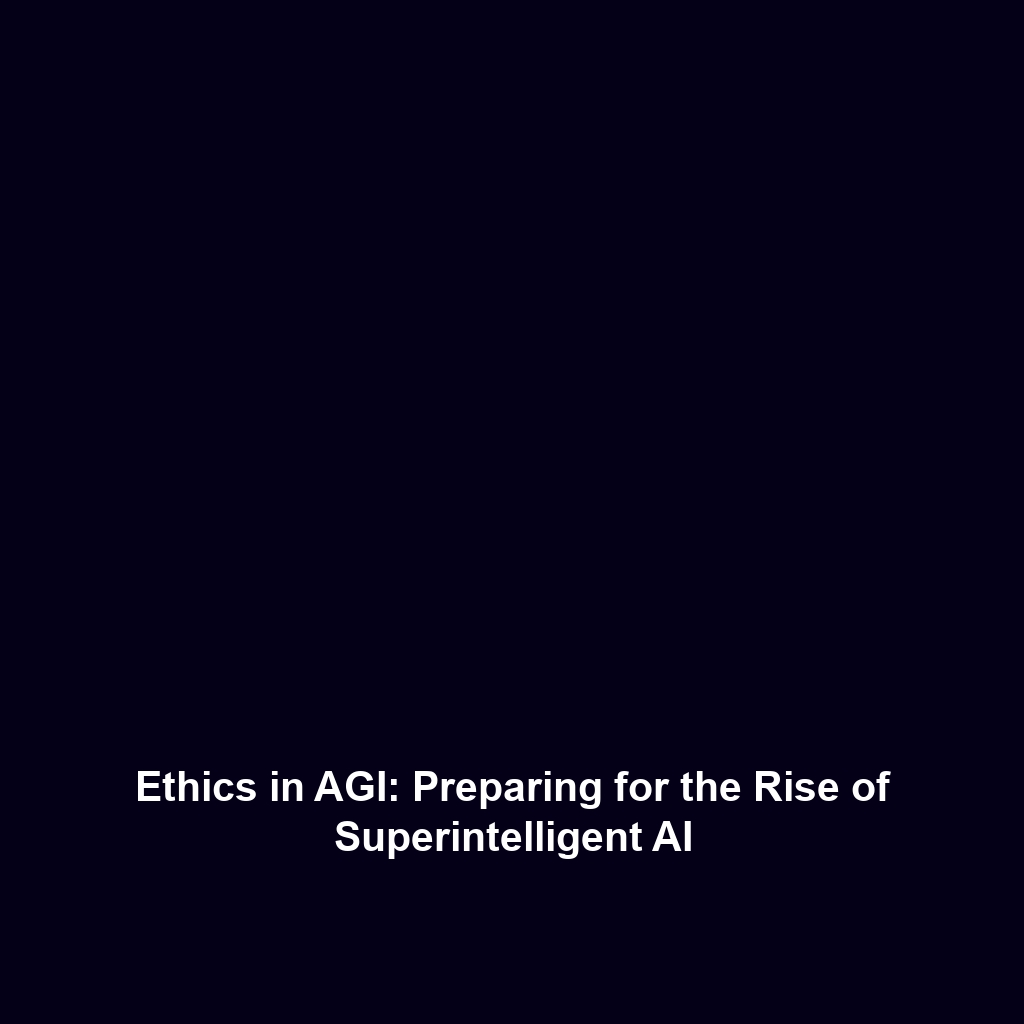Ethics in General AI (AGI): Preparing for the Rise of Superintelligent Systems
Introduction: As the field of artificial intelligence (AI) advances towards the realization of General AI (AGI), ethical considerations are increasingly paramount. The rise of superintelligent systems raises critical questions about moral responsibility, decision-making frameworks, and the potential implications for society. Understanding the ethics in General AI is essential for guiding the deployment and governance of these transformative technologies within the broader context of AI ethics. This article delves into the significance, principles, applications, and future directions related to ethics in AGI.
Key Concepts
Understanding the ethics associated with AGI involves several major concepts:
- Value Alignment: Ensuring that AGI systems align with human values and moral frameworks to prevent harm.
- Transparency: The need for AGI systems to be interpretable and their decisions to be understandable by humans.
- Accountability: Establishing mechanisms to hold developers and users of AGI systems responsible for their actions and decisions.
- Fairness: Mitigating biases in AGI systems that could perpetuate social inequalities.
These concepts fit into the broader category of AI ethics, which focuses on the moral implications of AI technologies and their societal impacts.
Applications and Real-World Uses
Examining the applications of ethics in General AI demonstrates its real-world relevance:
- Healthcare: Implementing AGI for diagnostic tools while ensuring patient privacy and data protection.
- Autonomous Systems: Designing ethical guidelines for AGI in self-driving cars that prioritize human safety.
- Financial Services: Developing AGI-driven algorithms with robust fairness metrics to avoid discrimination in lending practices.
These examples illustrate how ethics in General AI is used in AI ethics to foster responsible innovation.
Current Challenges
Despite significant progress, several challenges persist in studying ethics in AGI:
- Ambiguity in Values: Differing cultural and societal values make it difficult to establish universal ethical standards.
- Technical Limitations: Current AI technologies often lack the capability to interpret and implement ethical considerations adequately.
- Regulatory Hurdles: The rapid pace of AI development outstrips existing legal frameworks, creating gaps in accountability.
These challenges of ethics in General AI highlight the complexities involved in integrating ethical considerations into technology.
Future Research and Innovations
Looking ahead, numerous avenues for research and innovation are emerging within the realm of ethics in AGI:
- AI Ethics Frameworks: Developing multidimensional ethical frameworks to guide AGI deployment.
- Explainable AI: Innovations that enhance the interpretability of AGI systems to improve transparency.
- Collaborative Governance: Research focusing on collaborative approaches between stakeholders to foster accountability and oversight.
These innovations represent significant potential breakthroughs in ensuring an ethically sound future for AGI.
Conclusion
In summary, the rise of superintelligent systems calls for a comprehensive understanding of the ethics in General AI (AGI). From value alignment to fairness, the implications of these technologies are vast and complex. As we prepare for this technological evolution, it is crucial to foster an ethical framework that guides the development and application of AGI. We encourage further exploration of this critical field and invite readers to engage with related topics within AI ethics.
For more insights on AI ethics and best practices, visit our comprehensive resources page.


